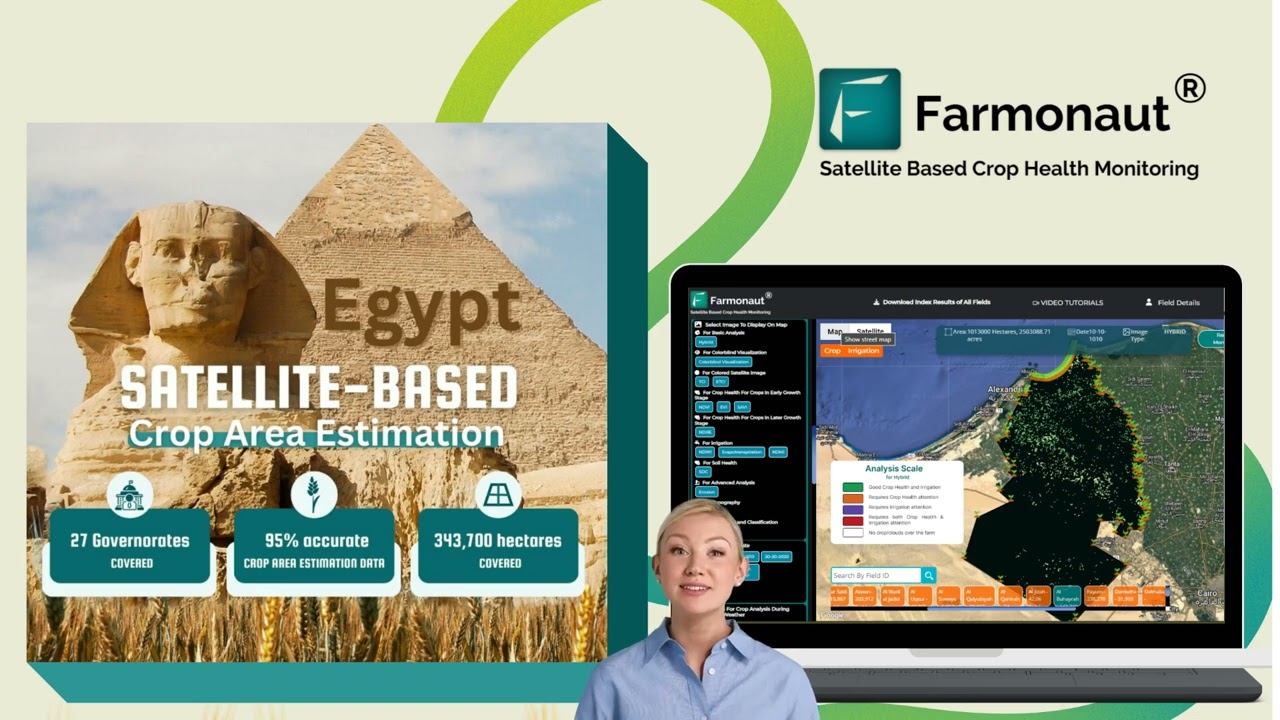Ponzi Schemes in Nigeria: 7 Red Flags to Avoid Costly Losses
As financial fraud continues to evolve globally, Nigerians face an alarming rise in Ponzi schemes, with high-return digital investment fraud increasingly targeting unwary investors. Recent advisories from the Nigerian Financial Intelligence Unit (NFIU) underline the dangers in trending sectors—crypto, real estate, and agriculture. In this comprehensive guide, we reveal the 7 major red flags of Ponzi schemes in Nigeria, providing actionable steps to spot fraudulent investments and safeguard your assets.
- Understanding Ponzi Schemes in Nigeria
- Key Sectors: Digital Assets, Real Estate, Agriculture
- 7 Red Flags to Avoid Ponzi Scheme Losses
- Why Nigerians Fall for Ponzi Schemes
- Comparison Table: Ponzi Scheme Red Flags vs. Legit Investments
- Regulatory Framework & The Role of Authorities
- How to Protect Yourself against Investment Scams
- Farmonaut: Transforming Trust and Transparency with Agritech
- FAQs about Ponzi Schemes in Nigeria & Investor Safety
- Conclusion
Understanding Ponzi Schemes in Nigeria
Ponzi schemes in Nigeria have morphed beyond the traditional “get-rich-quick” models, moving into complex realms and leveraging digital platforms. These fraudulent business operations entice investors with promises of high returns from investments in digital assets, cryptocurrencies, real estate, and agricultural ventures. The schemes use fresh investments to pay earlier ones, hiding the absence of genuine revenue-generating business.
According to a recent NFIU advisory published in June 2024, Nigeria is seeing a surge in fraudulent investment schemes, exploiting regulatory loopholes, and targeting individuals who face financial hardship. The unit highlights various tactics used to attract victims, including enticing brand names, referral networks, influencer marketing, and religious or social endorsements, making trust easy to gain and losses even more devastating.
Key Trends: Digital Assets, Real Estate, and Agriculture Sectors
The most prevalent form of Ponzi schemes in Nigeria today operates in:
- Digital Assets and Cryptocurrencies: Using tokens, blockchain-based packages, referral models.
- Real Estate: Using complex partnerships and fake business models to tap into the booming property investment market.
- Agriculture: Promising astronomical returns via investments in farm operations, leveraging the public’s desire to support food security and earn passive income.
The NFIU advises that while many digital investment products may look sophisticated, the underlying operations are often opaque, unregulated, and unsustainable, posing enormous risks of financial loss for Nigerians.
7 Red Flags to Avoid Costly Losses: How to Spot Ponzi Schemes in Nigeria
Here, we break down the critical indicators—red flags—that mark a Ponzi scheme, as outlined by the NFIU and trusted regulatory sources. By understanding these, we empower our community to identify digital investment fraud, crypto scams, and unregulated crowdfunding risks quickly.
1. Unrealistic Guaranteed Returns
One of the most glaring signs of a Ponzi scheme is a promise of exorbitantly high returns—often 30%, 100%, or even more, in less than a few months. True financial investments are subject to market fluctuations and risks; guarantees of outsized profits are unrealistic and mathematically unsustainable.
- Example: Promising 100% ROI in 30 days, like the Crypto Bridge Exchange (CBEX) scam.
- Red Flag: “No risk” or “guaranteed” outcomes, especially in volatile sectors such as crypto or agriculture.
2. Lack of Regulatory Licensing or Oversight
The absence of regulatory approval is a potent indicator of fraud. Legitimate investment platforms in Nigeria—particularly those dealing with securities, digital assets, or collective investment—must be registered with the Securities and Exchange Commission (SEC).
- Warning: Companies unable to provide a verifiable SEC license or those not present in official lists.
- Action: Check the SEC website to verify the investment entity’s registration.
3. Opaque, Complex, or Non-Transparent Business Models
Many fraudulent schemes operate using complicated business models that make it difficult for even seasoned investors to understand how returns are generated. Vague explanations, technological jargon, or the refusal to provide clear details are significant red flags.
- Example: Use of untraceable blockchain techniques and fake tokens.
- Red Flag: “Proprietary algorithms” or “secret trading bots” with no demonstrable proof.
4. Pressure to Recruit (Referral-Driven Rewards)
If the main source of earnings comes from bringing new investors in, rather than actual business activity or asset growth, you’re likely dealing with a Ponzi or pyramid scheme.
- Warning: Investment returns increase as you bring more people in.
- Indicator: Referral bonuses are the main marketing message, not real investment performance.
5. Fake Partnerships and Endorsements
Fraudulent schemes often boast of partnerships with well-known brands, influencers, or even regulatory authorities. Upon verification, these claims typically fall apart. Many use religious leaders, celebrities, or fake brand endorsements to build trust.
- Example: Displaying logos of reputable entities without consent or listing made-up testimonials.
- Action: Independently verify all such claims through official channels.
6. Reliance on Social Media and Messaging Apps for Transactions
Legitimate investment platforms will have official web portals and visible regulatory footprints. If all communications and transactions happen through WhatsApp, Telegram, or only on social networks—with no physical office—proceed with caution.
- Warning: No clear customer support or accessible contact addresses.
- Indicator: Payment is only possible via direct peer-to-peer transfers.
7. No Audit Trails, Suspicious Fund Flows, and Delayed Withdrawals
Ponzi schemes usually lack transparent audits. If withdrawal requests are delayed without reason or subject to “processing fees” that should not exist, this is a strong warning sign. Mismanagement or deliberate obfuscation of how funds are moved or spent is central to these operations.
- Example: Transactions routed through multiple bank accounts, suspicious fund flows, or demands for new money to access previous profits.
- Action: Insist on documented transactions and check if the scheme is listed in current NFIU advisories.
Why Nigerians Fall for Ponzi Schemes: Psychology and Financial Pressures
Understanding why so many Nigerians become victims is key for developing better investor protection in Nigeria. Here are some recurring reasons:
- Desperation during financial hardship: Economic hardship and rising living costs push people in search of quick and high return investments.
- Trust in Influencers and Social Proof: Social media influencers and even religious leaders are used to build trust and make schemes appear legitimate.
- Lack of Financial Literacy: Many lack the skills to properly assess investment risks, read financial statements, or verify licensing.
- Clever Branding and Technological Jargon: Enticing brand names and complex digital asset or blockchain claims can mask fraud.
With this in mind, it’s vital for us all to scrutinize investment opportunities, ask critical questions, and make use of official verification tools, such as those provided by the SEC and blockchain traceability solutions that enhance transparency.
Comparison Table: 7 Red Flags of Ponzi Schemes vs. Legitimate Investment Opportunities in Nigeria (2024 Estimate)
| Red Flag/ Warning Sign | Ponzi Scheme Example & Frequency | Legitimate Investment Behaviors | Estimated Impact (₦ lost/year) |
|---|---|---|---|
| Unrealistic Returns |
Promises of 50-100% ROI in 1 month (CBEX, Chinmark). Estimated in 60%+ of recent digital scams. |
Returns are market-linked, never guaranteed. Disclosed risk factors in every prospectus. | ₦125 billion |
| Lack of Regulation |
No visible SEC registration, no regulator licensing. Found in over 75% of fraudulent schemes. |
Prominently display and verify SEC/NAICOM/Central Bank registration. | ₦85 billion |
| Opaque or Complex Models |
Blockchain and token terminology with no technical whitepaper; no auditing. ~65% of digital investment fraud. |
Clear business model. Audited financials published and traceable. | ₦46 billion |
| Referral-based Rewards |
Income based on new recruitments, not actual returns on assets. ~50% of cases. |
Performance-based earnings only; no referral or pyramid structure. | ₦29 billion |
| Fake Partnerships/ Endorsements |
Use of famous logos and influencer endorsements without proof. ~40% of all scams. |
All claimed partnerships are verifiable directly with brands or organizations. | ₦21 billion |
| Social Media-First Operations |
Transactions via WhatsApp, Telegram; no website or physical office. ~60% of recent investment fraud. |
Secure web & mobile apps, transparent KYC, physical office address. | ₦15 billion |
| No Audit Trail/ Suspicious Flows |
Delayed withdrawals, undocumented transactions; fake tokens. Seen in all large-scale collapses. |
Regular audits, documented transactions, withdrawals processed in line with clear policy. | ₦7 billion |
Regulatory Framework & The Role of Authorities
In response to the surging digital investment fraud, Nigerian authorities are stepping up. The newly enacted Investment and Securities Act (ISA) 2025 criminalizes the promotion of Ponzi schemes and unregulated investment operations, especially those dealing with virtual assets and “crowdfunding” ventures. Significant new measures include:
- Heavy Penalties: Fines of N20 million+ and up to 10 years’ imprisonment for promoters.
- Expanded SEC Powers: The Securities and Exchange Commission (SEC) is now empowered for direct regulation of digital assets in Nigeria—including crypto investment scams, token sales, and collective investment schemes.
- KYC and AML: Banks and financial institutions must enforce Know-Your-Customer (KYC) and Anti-Money Laundering (AML) compliance, reporting suspicious transactions immediately.
- Public Awareness: The NFIU and SEC are enhancing investor protection in Nigeria with more accessible public advisories and lists of blacklisted, fraudulent entities.
These changes are structured to minimize unregulated crowdfunding risks—especially in agriculture, real estate, and crypto sectors—offering hope for safer, more transparent investment environments.
How to Protect Yourself against Investment Scams
To defend against the escalating threat of Ponzi schemes in Nigeria, we urge every investor, business owner, and public institution to take the following actionable steps:
- Verify Regulatory Status: Always check for up-to-date SEC registration.
Link: Use the official SEC Nigeria website. - Ask Critical Questions: Request clarity on how returns are generated; demand transparency in fund flow and business operations.
- Beware of Too-Good-To-Be-True Promises: If returns are excessively high or guaranteed, approach with skepticism. Compare claims with industry benchmarks and real asset growth.
- Watch for Opaque Fund Flows: If you cannot trace the source and path of funds, or if withdrawals are frequently delayed, treat it as suspicious.
- Utilize Blockchain Traceability: While digital assets can be opaque, tools like blockchain product traceability help audit and verify asset journeys, increasing transparency and trust.
- Report Suspicious Schemes: Immediately inform the NFIU or SEC of any shady business or entities matching the red flags above.
Bonus : Protecting agricultural investments
With agriculture Ponzi schemes on the rise, it’s wise to use only verified platforms for farm investments. Satellite-based solutions like Farmonaut’s Agro Admin App provide transparent, real-time monitoring of farming operations—helping agribusinesses, cooperatives, and even banks to track farm performance and resource allocation remotely.
Farmonaut: Transforming Trust and Transparency with Agritech
In a market plagued by agriculture Ponzi schemes and unregulated crowdfunding risks, Farmonaut stands out by empowering farmers, agribusinesses, and the public sector with tools for real-time monitoring and blockchain-based transparency, without being a regulator or an input seller.
- Satellite-Based Monitoring: With carbon footprinting solutions, precision monitoring, and fleet management of agri-assets, Farmonaut promotes genuine, sustainable business operations.
- Blockchain Product Traceability: Our traceability platform leverages blockchain to verify the journey of agri-products and reduce risk of fraudulent claims—critical for companies needing supply chain authenticity.
- API for Integration & Transparency: Enable direct integration of real-time farm data and weather analytics using the Farmonaut API and our Developer Docs.
- Crop Loan & Insurance Verification: Reduce unverified, fake claims with satellite-backed loan verification—helping financial institutions minimize fraud.
How it helps fight Ponzi risks: By delivering independent, digital records of farm health, crop progress, and machinery usage, Farmonaut’s system makes it difficult for illegitimate operators to fabricate performance reports or manipulate investor data. Smart large-scale monitoring tools also help governments and NGOs monitor and report on real farm projects, not just promises or enticing brand names.
Accessibility: Farmonaut solutions are easy to adopt across devices—web, iOS, Android, and API integration—making investor protection in Nigeria and assurance for entities more practical and affordable.
FAQs about Ponzi Schemes in Nigeria & Investor Safety
-
What is a Ponzi scheme?
A Ponzi scheme is an illegal investment operation where profits are paid to earlier investors from the contributions of new investors, rather than from genuine earnings. They eventually collapse when recruitment slows and there’s no sustainable asset base. -
How can I verify if an investment is registered with SEC Nigeria?
Visit sec.gov.ng and check their registry of licensed entities for digital assets, securities, and crowdfunding platforms. -
What steps should I take before investing in agriculture?
Always confirm if the entity is authentic, ask for independent farm monitoring data, review business operations, and check for regulatory registrations. Use remote monitoring solutions where available. -
How do digital assets and blockchain make investment safer?
While misused in some scams, blockchain can actually improve transparency and reduce fraud when used for product traceability and independent verification—like Farmonaut does for agriculture. -
What are the penalties for operating a Ponzi scheme under the new Nigerian ISA 2025?
Promotion of illegal schemes now carries a minimum fine of ₦20 million and up to 10 years imprisonment, plus seizure of ill-gotten gains.
Conclusion: Stay Vigilant & Empowered with Transparency
As Ponzi schemes in Nigeria become more sophisticated and digitally driven, we must all remain vigilant. High return investment risks, especially in crypto investment scams, unregulated crowdfunding risks in real estate and agriculture, demand high scrutiny.
Stay Safe: Learn to spot red flags, verify with authorities, and demand transparency in all investment operations. By relying on independent, data-driven tools—such as Farmonaut’s blockchain traceability and satellite-based monitoring systems—we can foster a culture of trust, sustainability, compliance, and resilience.
If you’re involved in agriculture or agri-business, use Farmonaut’s platforms for transparent monitoring today. For developers and financial institutions, integrate with our API to build trust in your business ecosystem.
Together, let’s build a safer financial future for all Nigerians—grounded in knowledge, regulation, and digital transparency.






















